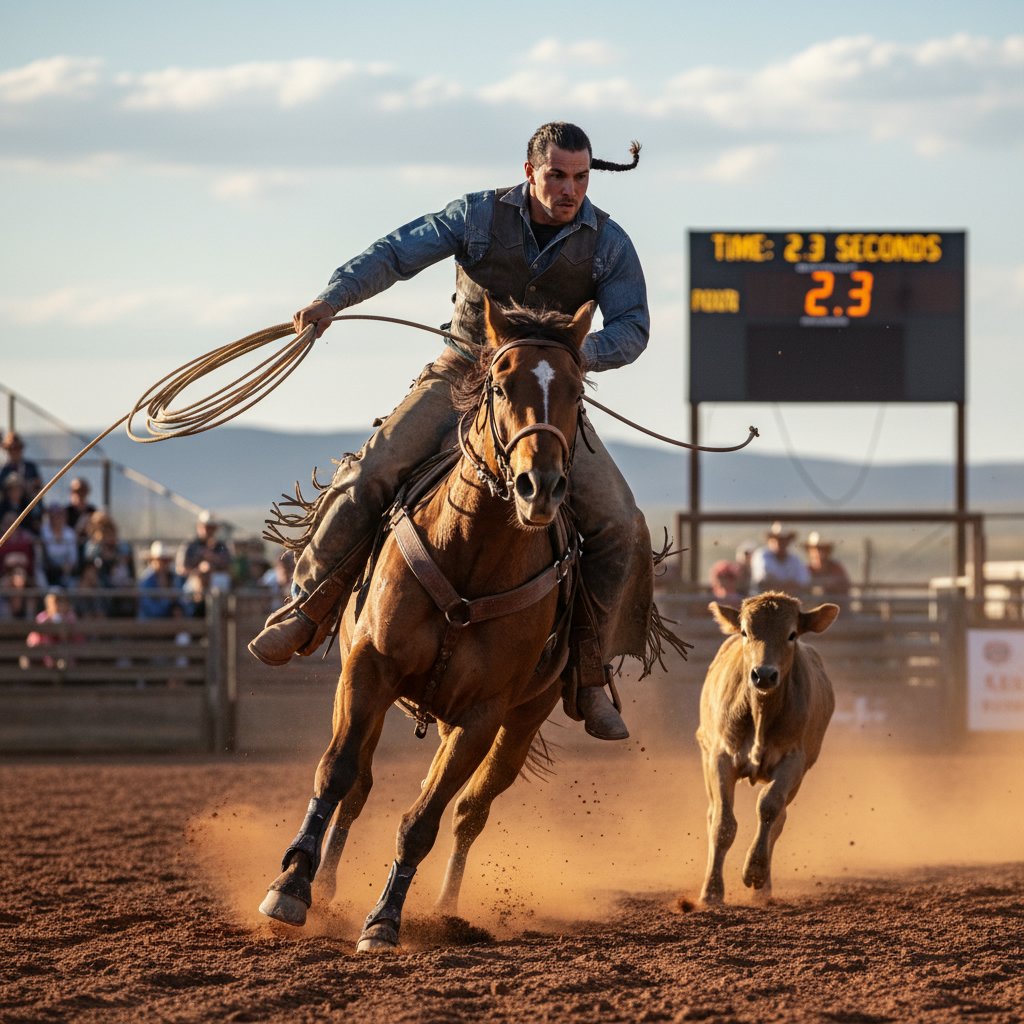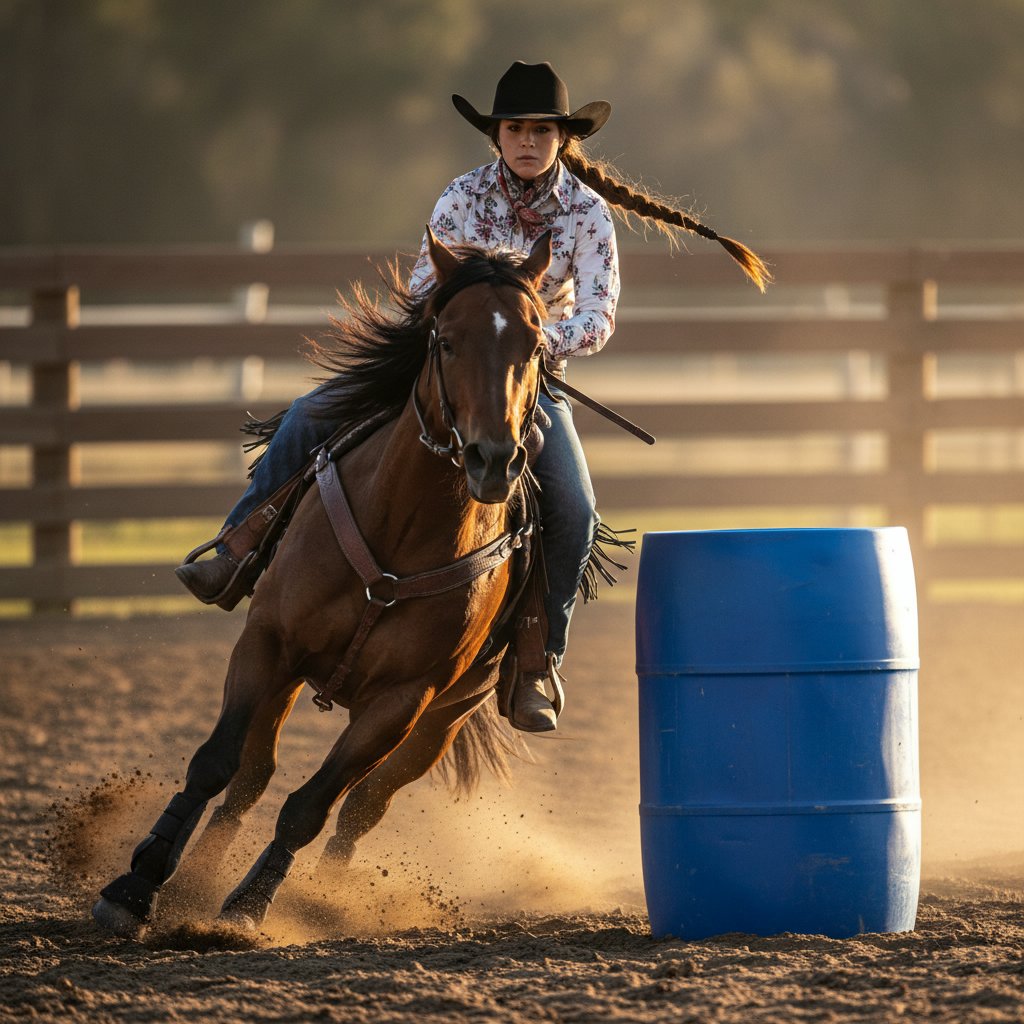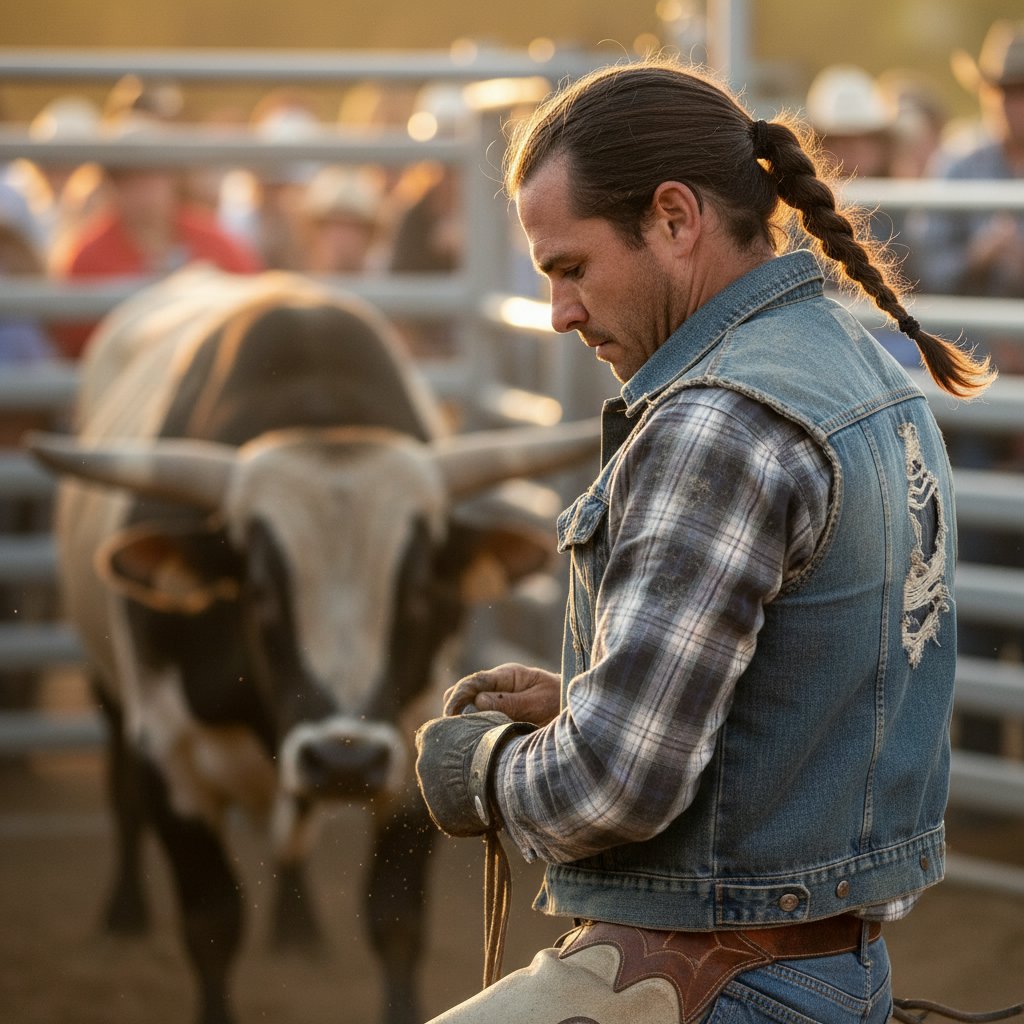The Butterfly Effect Hairstyle: Your Ultimate Guide to 2025's Hottest Layered Cut | [Salon Name]
The Butterfly Effect: How This Layered Hairstyle Is Taking Over
Step aside, bobs and shags. There's a new, ethereal hairstyle fluttering into the spotlight and capturing the hearts of style icons and social media influencers alike: the butterfly effect hairstyle. This beautifully layered cut is more than just a passing trend; it's a masterclass in creating volume, movement, and the illusion of shorter hair without sacrificing length. It’s the ultimate two-in-one look, offering the face-framing benefits of a short cut with the luxurious flow of long locks. If you've been searching for a way to transform your hair with dramatic body and a soft, romantic silhouette, the butterfly cut might be your perfect match. This comprehensive guide will explore every facet of this sensational style, from its technical construction to daily maintenance, ensuring you have all the information needed before your next salon visit.
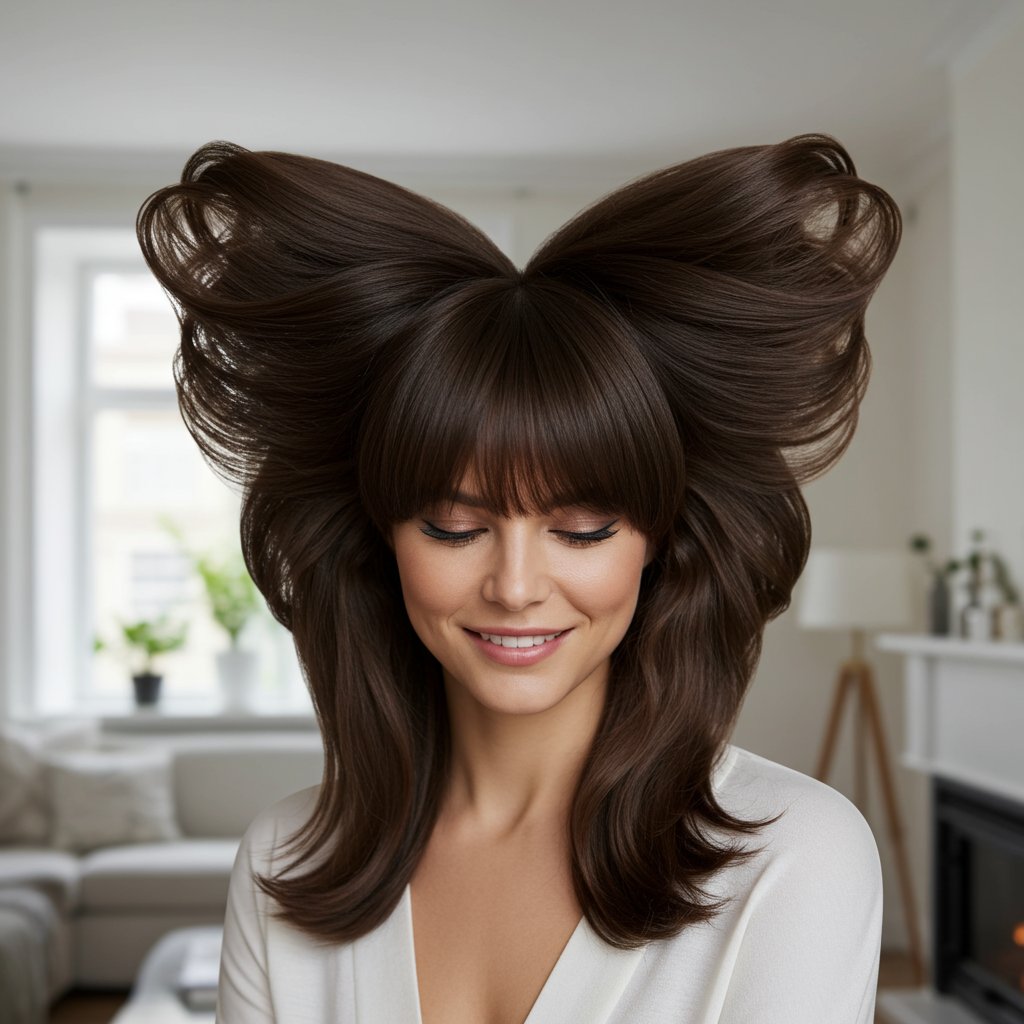
This hairstyle is a celebration of texture and dimension. Its name is derived from the way the shorter layers mimic the delicate, fluttering wings of a butterfly, creating an airy, weightless effect around the face. The magic lies in its clever construction: shorter, chin-length or collarbone-grazing layers are concentrated at the top and front, while the layers in the back are kept long and flowing. This duality creates a stunning profile and incredible versatility. Whether you're seeing it grace the red carpet or scrolling through viral TikTok transformations, the butterfly effect hairstyle is undeniably the cut of the moment, and its popularity shows no signs of slowing down. It’s a modern take on 90s supermodel hair, reimagined for today's desire for effortless-looking, yet highly chic, styles.
What Exactly Is the Butterfly Effect Hairstyle?
The butterfly effect hairstyle is a highly strategic layered haircut characterized by a distinct separation between short, face-framing layers and long, flowing layers throughout the rest of the hair. Think of it as a haircut within a haircut. The top section is cut to resemble a shorter style, often a long bob or lob, which creates a 'wing-like' effect that beautifully frames the face, enhances cheekbones, and adds significant volume at the crown. These shorter layers typically fall somewhere between the chin and the shoulders.
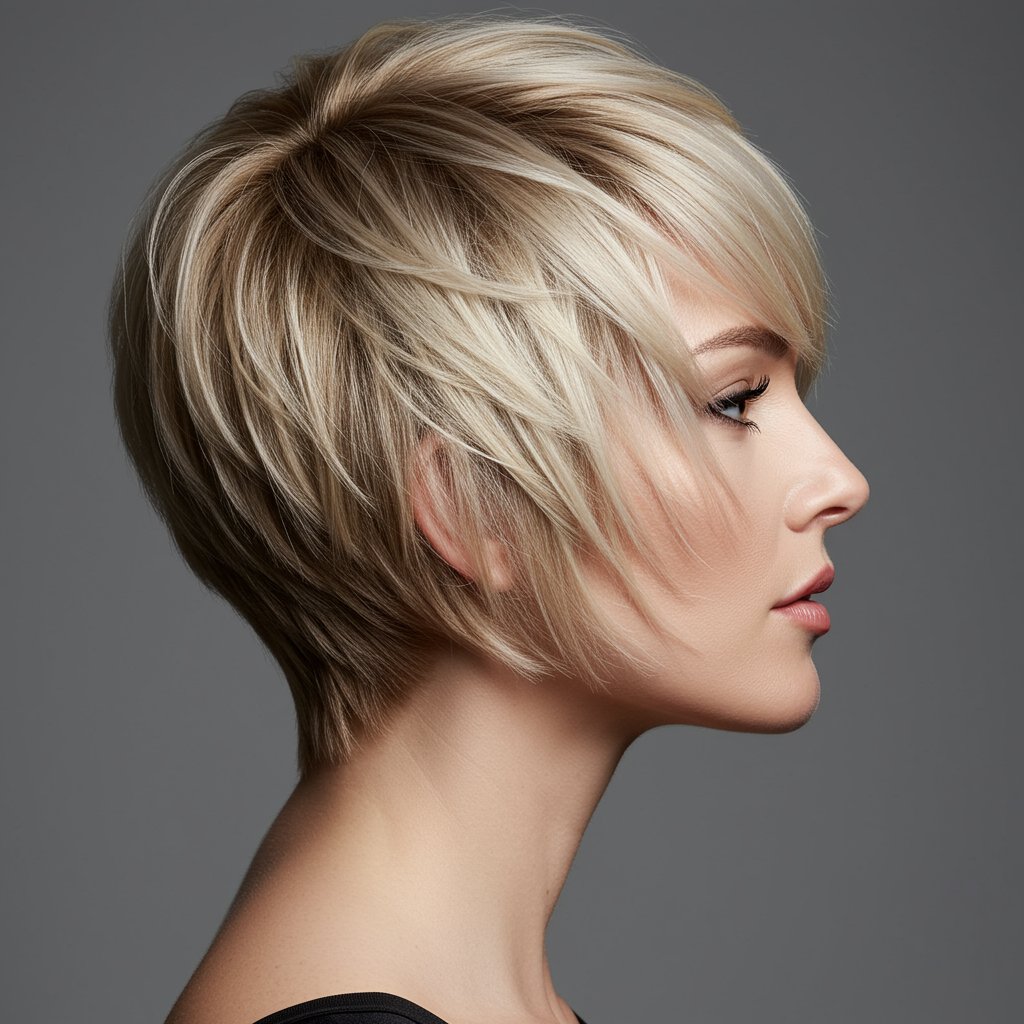
Beneath this shorter 'canopy', the rest of the hair is kept long, with seamless, cascading layers that blend downwards. This preserves the overall length, giving you the best of both worlds. The contrast between the short, airy top layers and the long, sweeping base is what gives the butterfly cut its signature movement and drama. It’s a sophisticated technique that removes weight where you don't want it (preventing hair from falling flat) and adds body where you do. This makes it a far cry from the uniform, one-length styles of the past, offering a dynamic and lived-in aesthetic that feels both glamorous and refreshingly modern.
The genius of this cut is its optical illusion. When you wear your hair down, it looks like a full, bouncy, and beautifully layered long style. However, the shorter layers provide so much versatility. You can easily pin back the longer sections to create a convincing 'faux bob' for a completely different look without a single snip of the scissors. This transformative quality, combined with its universally flattering shape, is a primary reason for its meteoric rise in popularity. It offers a low-commitment way to experiment with shorter hair while retaining the security and styling options of long locks.
The Anatomy of the Cut: Deconstructing the Layers
Understanding the technical aspects of the butterfly cut is key to communicating your vision to a stylist. The cut is achieved by sectioning the hair, typically into a top 'horseshoe' section and a bottom section. The magic begins with the top layers, which are often cut using techniques like feathering or slide-cutting to create softness and prevent blunt, heavy lines. These layers are directed forward to frame the face, with the shortest pieces usually starting around the chin and cascading back.
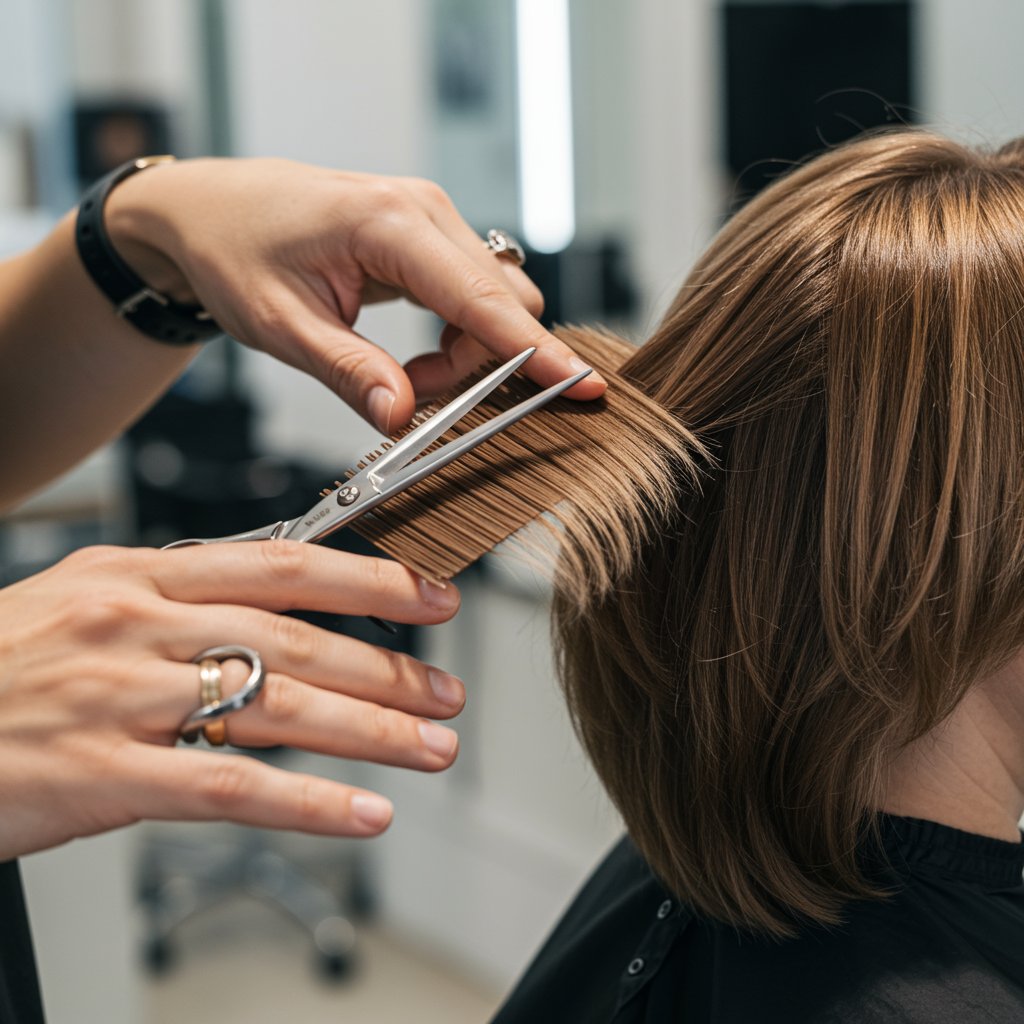
The Face-Framing 'Wings'
The defining feature is the set of shorter, wispy layers at the front. A skilled stylist will tailor the length of these 'wings' to your specific face shape. For a round or square face, longer layers that fall below the chin can create an elongating effect. For oval or heart-shaped faces, shorter layers that hit right at the cheekbone can add width and balance. These are not blunt bangs but rather soft, sweeping layers that blend seamlessly into the rest of the cut, creating that signature fluttery movement.
The Long, Cascading Base
The layers in the back and on the sides are kept significantly longer. This is crucial for maintaining the overall length and creating a luxurious, full-bodied look. These longer layers are also feathered, but their purpose is to add subtle movement and remove bulk from the ends, preventing the hair from looking heavy or triangular. The connection between the short top layers and the long bottom layers must be seamless to avoid a 'mullet' effect. This is where the expertise of a professional stylist is paramount; they will use precise blending techniques to ensure the layers flow into one another harmoniously, creating a cohesive and polished style.
Why Is the Butterfly Cut So Popular Right Now?
The butterfly haircut's explosion onto the scene can be attributed to a perfect storm of social media influence, celebrity endorsement, and its inherent versatility. Platforms like TikTok and Instagram have been flooded with dramatic 'before and after' videos showcasing the cut's transformative power. Users demonstrate how the style adds instant volume and bounce, and these viral moments have fueled a massive demand in salons worldwide. The visual appeal is undeniable – it's a haircut that looks incredible in motion.
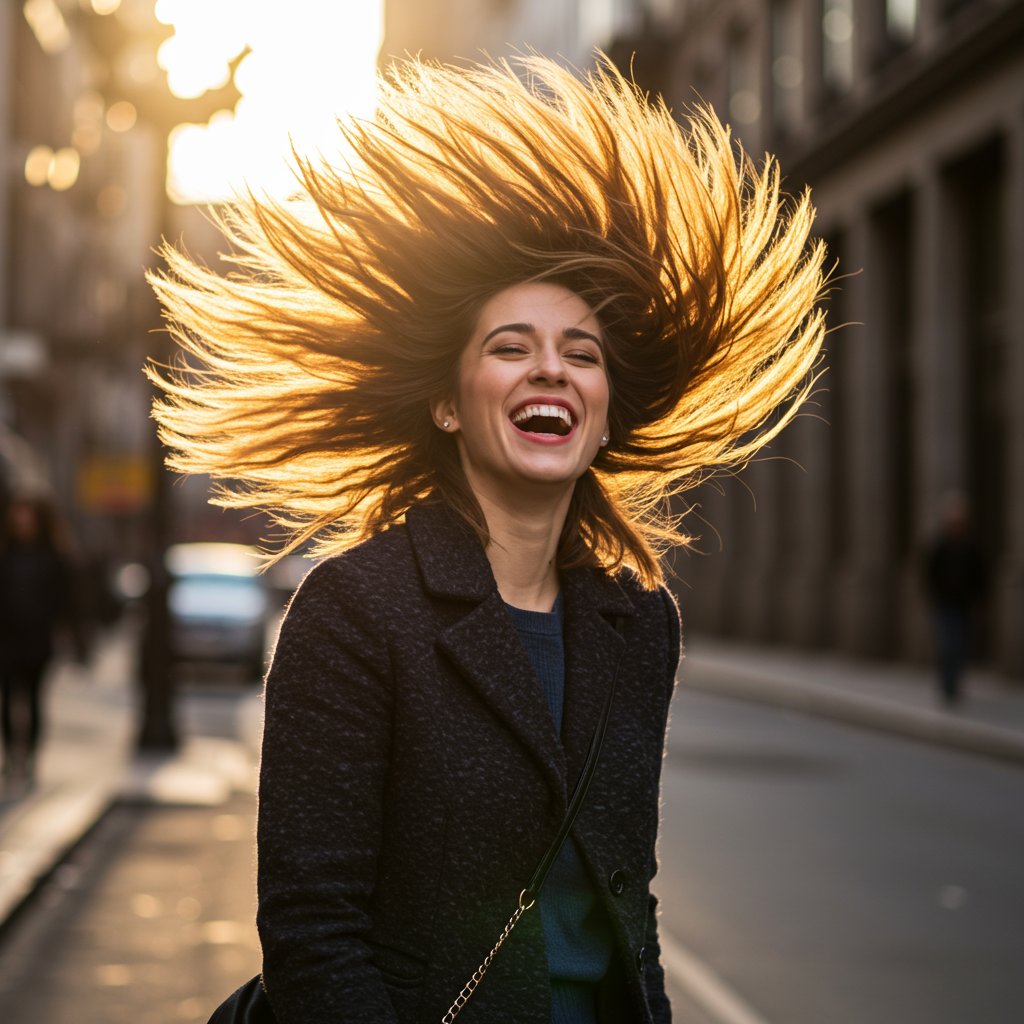
Celebrities and style influencers have also played a huge role. From Hollywood A-listers to top models, many have been spotted sporting this voluminous, layered look, solidifying its status as a must-have style. This celebrity adoption provides endless inspiration and demonstrates how the cut can be adapted for red carpet glamour or casual, everyday chic. It taps into a nostalgic love for 90s supermodel hair—think Cindy Crawford's iconic volume—but with a modern, softer finish that feels fresh and current. It’s the perfect blend of retro glamour and contemporary ease.
Beyond the hype, the core reason for its popularity is its flattering nature. It’s a surprisingly democratic haircut. The customizable layers can be tailored to complement nearly any face shape, and it works across a spectrum of hair types. It provides a solution for those who feel their long hair is weighing them down but are hesitant to commit to a major chop. The butterfly cut offers a dramatic change in shape and volume without sacrificing precious length, making it the perfect low-risk, high-reward style transformation.
Is the Butterfly Hairstyle Right for You? Exploring Face Shapes and Hair Types
One of the butterfly cut's greatest strengths is its adaptability. However, understanding how it interacts with your specific face shape and hair texture is key to achieving the best results. A consultation with an experienced stylist is the best way to determine the perfect version of the cut for you.
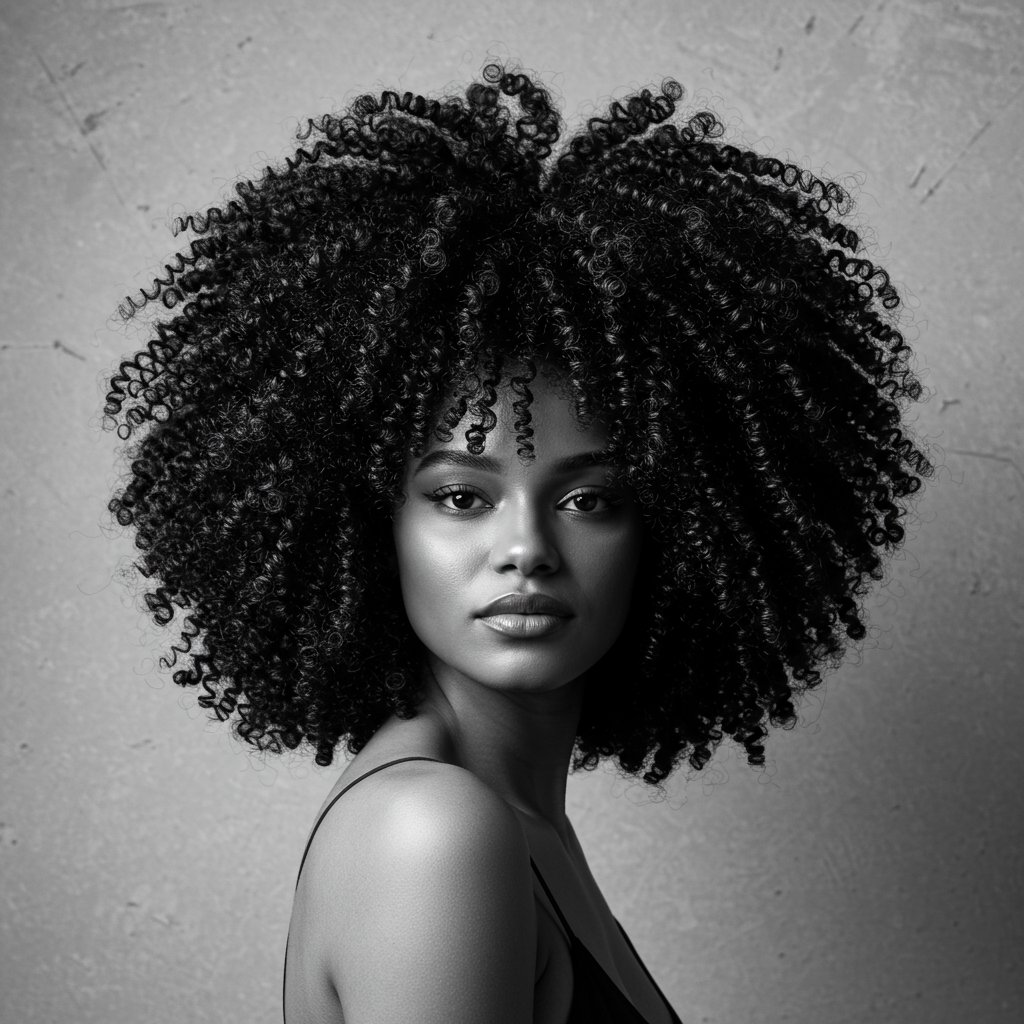
For Different Face Shapes:
- Oval: Considered the most versatile face shape, oval faces can handle almost any variation of the butterfly cut. You can play with shorter or longer face-framing layers depending on the features you want to highlight.
- Round: The goal for round faces is to add length and create more angular lines. Longer face-framing layers that fall below the chin are ideal, as they will draw the eye downward and create a slimming effect. Volume at the crown, which this cut provides in spades, also helps to elongate the face.
- Square: Softness is key for square face shapes. The wispy, feathered layers of the butterfly cut are perfect for softening a strong jawline. Layers that curl inward towards the chin can beautifully contour the face.
- Heart: For heart-shaped faces, which are wider at the forehead and narrower at the chin, the butterfly cut can add volume around the lower half of the face to create balance. Layers that begin at the cheekbones and sweep outwards can be particularly flattering.
For Different Hair Types:
- Fine Hair: This cut can be a game-changer for fine hair. The layering technique removes weight from the ends, which can drag fine hair down, and redistributes it to the crown, creating the illusion of much thicker, fuller hair.
- Thick Hair: For those with thick or heavy hair, the butterfly cut is a fantastic way to remove excess bulk and add movement and airiness. The layers prevent the hair from becoming too bottom-heavy and triangular, creating a more balanced and manageable shape.
- Wavy & Curly Hair: The butterfly cut can look absolutely stunning on wavy and curly hair, enhancing the natural texture and creating a beautiful, rounded shape. It’s essential to see a stylist experienced in cutting curly hair, as they will cut the layers dry to work with your specific curl pattern and prevent unwanted shrinkage or frizz.
How to Ask Your Stylist for the Perfect Butterfly Cut
Clear communication is the bridge between the haircut you want and the haircut you get. Simply asking for a 'butterfly cut' is a good start, but providing more detail will ensure you and your stylist are on the same page. Arm yourself with knowledge and inspiration for a successful salon visit.
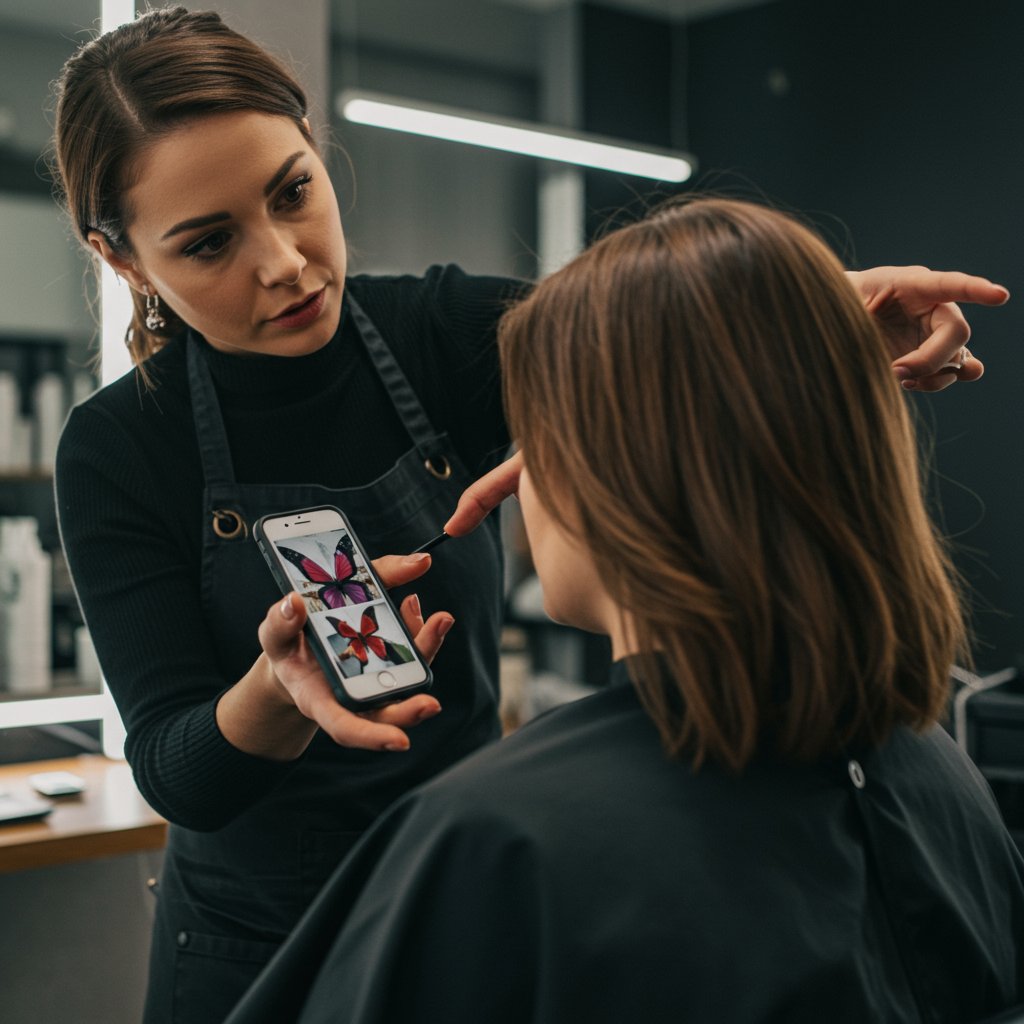
First and foremost, collect inspiration photos. A picture is worth a thousand words, especially in a hair salon. Find multiple examples of the butterfly cut on hair that has a similar texture and color to your own. This gives your stylist a clear visual reference for the kind of layers, length, and overall vibe you're aiming for. Point out what you specifically like about each photo—is it the length of the face-framing pieces? The amount of volume at the crown? The softness of the ends?
Use descriptive language to articulate your goals. Words like 'soft,' 'feathery,' 'bouncy,' 'voluminous,' and 'face-framing' are perfect. Be specific about where you want the shortest layers to start. Do you want them to hit your cheekbones, your chin, or your collarbone? Discuss your lifestyle and how much time you're willing to spend on styling each day. This will help your stylist tailor the cut to be as low-maintenance or high-glamour as you need. A great stylist will always begin with a thorough consultation, so come prepared to have a conversation about your hair history, your goals, and your daily routine.
Styling the Butterfly Cut at Home: Day-to-Day and Glam Looks
Once you have the perfect cut, knowing how to style it will make all the difference. The beauty of the butterfly cut is its versatility, allowing for a range of looks from effortlessly chic to full-on glamour.
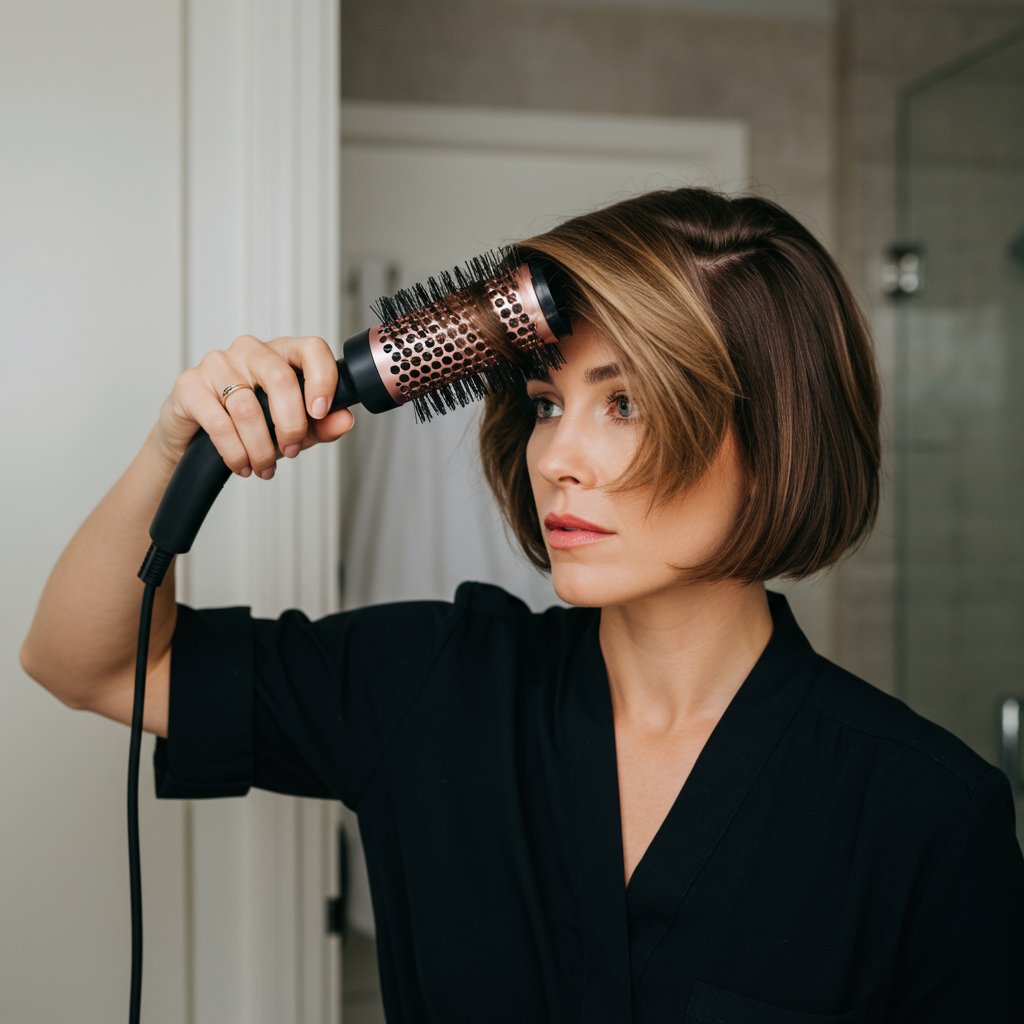
The Effortless Everyday Blowout
This is the signature style for the butterfly cut. Start with damp, towel-dried hair and apply a volumizing mousse or spray at the roots and a heat protectant throughout. Using a large round brush, begin blow-drying your hair in sections. For the longer layers, pull the hair up and away from the scalp to create lift at the root. For the shorter, face-framing layers, use the round brush to sweep them away from your face, creating that classic 'Farrah Fawcett' flick. A blast of cool air at the end will help set the style. Finish with a light-hold hairspray to maintain the bounce without stiffness.The Glamorous Curls and Waves
For a more formal or romantic look, use a large-barrel curling iron or hot rollers. The key is to curl the shorter layers away from your face to open up your features. For the longer sections, you can alternate the direction of the curls for a more modern, less uniform look. Once the curls have cooled completely, gently brush them out with your fingers or a wide-tooth comb to create soft, cascading waves. A texturizing spray can add a bit of grit and hold, while a shine serum on the ends will give a polished finish.The Chic Updo Illusion
This is where the 'two-cuts-in-one' magic happens. To create a faux bob, simply gather the long bottom layers and pin them securely and discreetly at the nape of your neck. Let the shorter top layers fall naturally over the pinned section. You can pull out a few face-framing tendrils to soften the look. This creates a stunningly convincing bob that's perfect for a special occasion or when you just want to switch things up without a long-term commitment.Maintenance and Upkeep: Keeping Your Butterfly Layers Fresh
To keep your butterfly cut looking its best, regular maintenance is key. The shape of this style is dependent on the precision of its layers, so you'll want to schedule regular trims to prevent the ends from becoming straggly and the layers from growing out unevenly. Most stylists recommend a trim every 8 to 12 weeks to maintain the cut's integrity and shape. This will keep the face-framing 'wings' sharp and the overall silhouette bouncy.
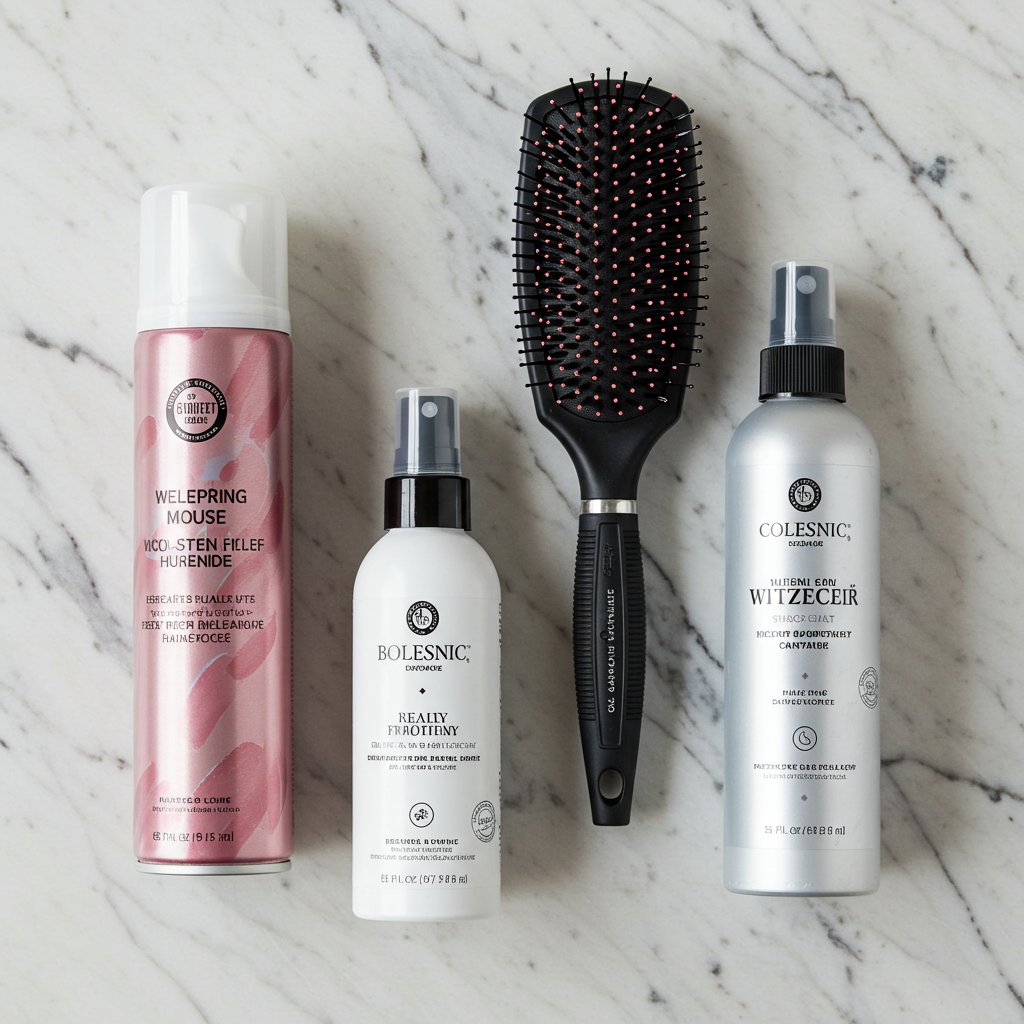
Product selection is also crucial. A good quality volumizing mousse is non-negotiable for achieving that signature lift at the roots. A reliable heat protectant spray is essential to shield your hair from damage during blow-drying and heat styling. To finish your look, a lightweight hairspray will provide hold without weighing down the airy layers, and a touch of dry shampoo on non-wash days can instantly revive volume at the crown. Investing in these salon-quality products will make at-home styling easier and extend the life of your beautiful cut.
Beyond styling products, maintaining the health of your hair is paramount. Layered hair, especially when heat-styled, can be prone to split ends. Incorporate a weekly deep conditioning treatment or hair mask into your routine to replenish moisture and keep your locks strong and shiny. Healthy hair not only looks better but also holds a style more effectively, ensuring your butterfly layers always look their best.
Pro-Styling Tips at a Glance
- Invest in a Large Round Brush: This is your number one tool for achieving a salon-quality blowout at home.
- Always Use Heat Protectant: Non-negotiable for keeping your layers healthy and split-end free.
- Master the Upward Blow-Dry: Always direct air from the roots upward to maximize volume.
- Curl Away From the Face: When using a curling iron, direct the face-framing layers away from your face to open up your features.
- Dry Shampoo is Your Best Friend: Use it on day two or three to absorb oil and boost root lift instantly.
- Cool Shot is Key: Finish your blowout with a blast of cool air to seal the hair cuticle and lock in the shape.
Frequently Asked Questions (FAQ)
1. What is the difference between a butterfly cut and a wolf cut or a shag? While all are layered styles, they have distinct differences. A shag is much choppier with heavily thinned-out ends and often features a full fringe. A wolf cut is a hybrid of a shag and a mullet, with very short, choppy layers on top and longer length in the back. The butterfly cut is much softer and more blended, with longer, feathery layers designed to create volume and a 'wing' effect, rather than the edgy, rock-and-roll texture of the shag or wolf cut.
2. Can I get a butterfly cut on shoulder-length hair? Yes, a modified version can be done on shoulder-length hair. It's often called a 'butterfly bob' or 'butterfly lob.' The principle is the same: shorter layers are cut on top to create volume and a face-framing shape, while the overall length is maintained at the collarbone or shoulders. It provides a similar bouncy effect on a shorter canvas.
3. How much volume does this cut actually create? The butterfly cut is specifically designed to create maximum volume, especially around the crown and face. By removing weight and introducing shorter layers on top, the hair is no longer dragged down, allowing it to have significantly more lift, body, and movement than a one-length cut.
4. Does the butterfly cut require a lot of daily styling? It can be as high or low maintenance as you want it to be. For the full, bouncy, blown-out look, it does require some styling with a blow dryer and round brush. However, it also air-dries beautifully, especially on wavy hair, into a soft, textured look. The layers provide so much built-in shape that it often looks good with minimal effort.
5. What products are absolutely essential for styling a butterfly cut? If you're going for the classic voluminous look, three products are key: a volumizing mousse applied to damp roots for lift, a high-quality heat protectant to prevent damage, and a large round brush to use while blow-drying. A light-hold hairspray is also great for finishing the style.
6. How often do I need to get it trimmed to maintain the shape? To keep the layers sharp and the shape defined, a trim every 8-12 weeks is recommended. If you notice the face-framing pieces are losing their 'flutter' or the ends are looking thin, it's time to book an appointment.
Conclusion: Embrace Your Transformation
The butterfly effect hairstyle is more than just a fleeting trend; it’s a testament to the power of a well-executed, strategic haircut. It offers a unique solution for those craving change, volume, and versatility without the commitment of a drastic chop. Its ability to flatter a wide array of face shapes and hair textures makes it an accessible and exciting option for almost anyone looking to refresh their look. From its 90s supermodel roots to its modern, viral fame, the butterfly cut proves that a great hairstyle can truly make you feel transformed.
If you're ready to experience the lift, movement, and confidence that comes with this stunning cut, the next step is to consult with a professional. An experienced stylist can assess your hair and features to create a customized butterfly cut that enhances your natural beauty. Embrace the change, enjoy the volume, and get ready to turn heads with 2025's most enchanting hairstyle.
